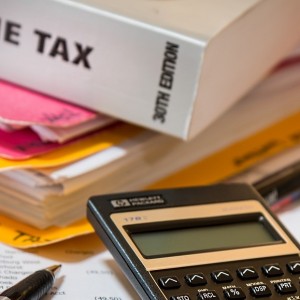No one wants to hear from the Internal Revenue Service unless they are receiving a refund.
As it turns out, the backlogged agency doesn't want to have to reach out to you, either, so it recently shared several ways taxpayers can minimize their chances of receiving any dreaded correspondence from the government.
Of course, what most taxpayers fear most from the IRS is to go through an audit. But the data shows Americans are much more likely to receive other types of requests from the agency to figure out any discrepancies.
During the 2020 tax year, which is the latest data available, the IRS conducted 509,917 field audits. Roughly twice as many notices – over 1 million – were sent over math errors, and another 3.4 million letters were issued due to third-party documents like W-2s or 1099s not matching with what was reported on returns.
"Many, if not most, of these contacts can be avoided," IRS spokesperson Eric Smith commented. He said the best thing taxpayers can do is file a return that’s correct and complete, explaining, "When your return is right to start with, the chances that you’ll hear from the IRS go way down—and that’s good news for both you and the IRS."
Here are some tips Smith offered to help avoid hearing from the IRS:
File a return and file it on time
Smith warns there are stiff penalties for not filing or for filing late, especially if you owe taxes.
Report all income
Check W-2s, 1099s and other year-end statements to make sure they are, or seem, correct. Smith said that overall, employers, banks, brokers and other payers do a great job preparing these statements in a short amount of time. But, they’re human and sometimes make mistakes. So, if one is missing or appears wrong, contact the entity that sent it and get it corrected.
Answer the cryptocurrency question
Be sure to answer "yes" or "no" to the virtual (crypto) currency question at the top of Form 1040. Do not leave it blank, or you will hear from the IRS.
If you answer yes, be sure to report any related income, be it in connection with sales of these assets or payments for services as an employee or in connection with a business.
Properly claim the Child Tax Credit
Most families received advance payments of the Child Tax Credit during the last half of 2021. In most cases, these payments covered half of your eligible credit. When you file now, you can claim the rest, or get the whole thing if you qualify but didn’t get any advance payments.
A few weeks ago, the IRS sent recipients a letter telling them how much they received. Use the information in that letter to fill out your return. If you disagree with the amount shown, contact the IRS at the number listed in the letter to see about getting it corrected.
"We’d rather hear from you before you file, rather than after," Smith said. "Listing the wrong amount for your advance payment will likely delay the processing of your return. It may also mean that you’ll get a notice from the IRS." He added, "Usually, this won’t be an audit but would instead be a math error notice."
Properly claim the Recovery Rebate Credit
Be sure to accurately claim the Recovery Rebate Credit if you qualified for the third round of Economic Impact Payments, also known as stimulus payments, issued last year, but didn’t get one or didn’t get the full amount. If you got a payment, the IRS sent you a letter telling you how much you got. Use it to fill out your return. Again, if you disagree with it, contact the IRS before filing to avoid a math error adjustment.
Check your charitable contributions
If you give to charity, be sure to get a receipt or acknowledgment letter from the charity before filing. For most contributions, this is a requirement under law.
You will want to accurately notate a qualified charitable distribution (QCD) on your return. Senior citizens receiving required IRA distributions often take advantage of the option to have some or all of it contributed directly, by the payer, to a qualified charity, but then fail to properly notate this QCD on their return on Line 4b. This can easily result in follow-up correspondence, often through the document-matching process, Smith said.
File electronically
The best way to assure accuracy is to file electronically, pay electronically and choose direct deposit for any refund. For years, error rates for paper have always been many times higher than those for anything done electronically, Smith said. Plus, paper processing always takes longer.
SOURCE: FOXNEWS IMAGE SOURCE: PIXABAY

















